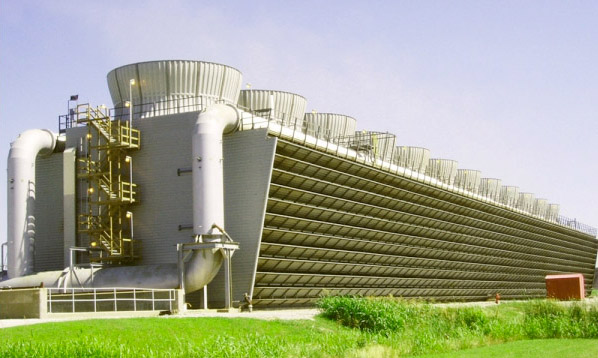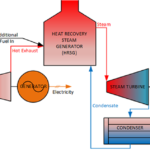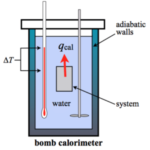Cooling tower is a device which is used to extract waste heat by the stream of water of low temperature. The cooling system of the cooling tower is known as the evaporative cooling system. In this process small amount of heat is rejected by evaporation and the most of the heat is rejected by the stream of water. Most of the times water cooled condenser’s water is being cooled by the cooling tower.
What is the difference between a cooling tower and a condenser ?
Condenser condenses the saturated vapor when the vapor comes into contact with the surface of the condenser which has a temperature below the saturation temperature.
Cooling tower is a device used for recirculating the condenser water coming out from the condenser coils. In cooling tower the condenser water can be cooled evaporatively ( by means of contact with the air).
What are the different parts of cooling towers ?
A cooling tower may consist of
· a fan to intake the outside air
· a medium for heat transfer
· a liquid holding system or basin .
· a system for distributing the air .
· a outer structure or casing .
What are the different types of cooling towers ?
· Counter Flow Induced Draft
· Crossed Flow Induced Draft
· Counter flow Forced Draft
Counter Flow Induced Draft Cooling Tower with Schematic Diagram
Here we can see that hot water from condenser is coming to the cooling tower. There is a water basin at the bottom. Air is coming from the sides and cooling the hot water. The hot air is being carried away by the propeller fan at the top. Cooled water is then taken out for further use.

Cross Flow Induced Draft Cooling Tower with Schematic Diagram

In this type the hot water is coming from the two sides and is being cooled and then taken to the condenser again.
Counter Flow Forced Draft Cooling Tower with Schematic Diagram
In this type of cooling tower a centrifugal fan is used to create the forced draft.


